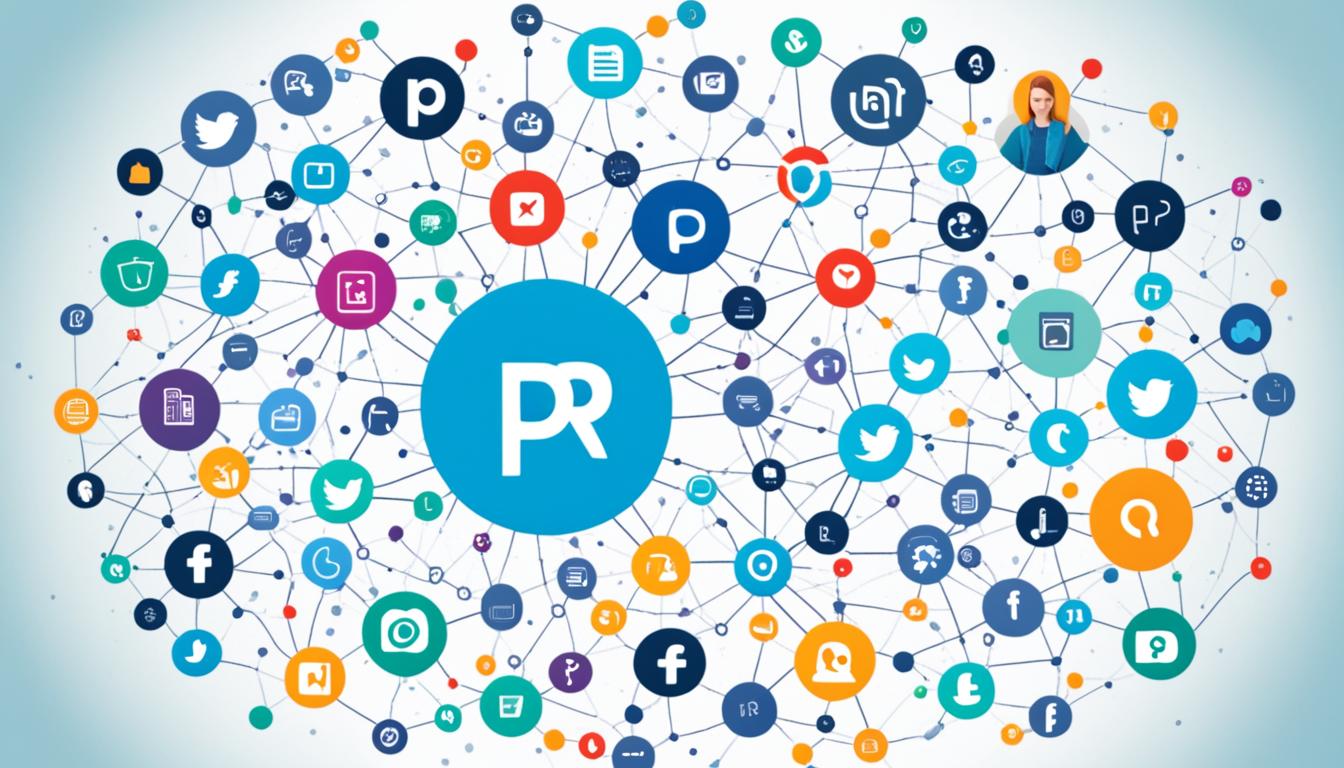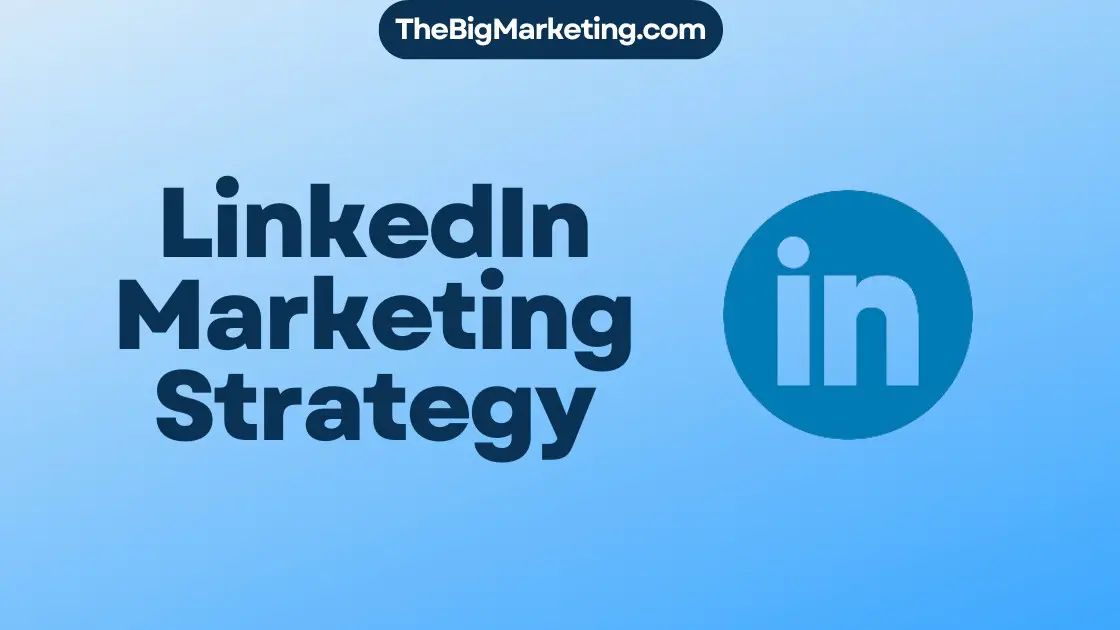Experiential marketing, also known as engagement marketing or XM, is a unique approach that focuses on creating memorable experiences for consumers rather than using traditional marketing methods. It allows brands to stand out and connect with their target audience by providing fun and interactive experiences. This form of marketing has evolved over the years, adapting to changes in the workplace and consumer behavior. It aims to generate brand awareness, stimulate purchases, create emotional connections, influence perception, and generate a loyal customer base. There are various strategies to implement experimental marketing, such as event marketing, guerrilla marketing campaigns, pop-up events, and brand activation.
Key Takeaways:
- Experimental marketing focuses on creating memorable experiences for consumers.
- It aims to generate brand awareness, stimulate purchases, and create emotional connections.
- Strategies for implementing experimental marketing include event marketing, guerrilla marketing campaigns, pop-up events, and brand activation.
- Experimental marketing techniques involve creating hands-on and interactive experiences for consumers.
- By engaging customers through unique experiences, brands can build stronger connections and increase customer loyalty.
What Is Experiential Marketing?
Experiential marketing, also known as engagement marketing or XM, is a dynamic approach that focuses on creating hands-on experiences for consumers. It is often integrated into existing events or designed as stand-alone experiences. The goal of experiential marketing is to increase brand awareness and encourage consumer participation.
Experiential marketers specialize in developing strategies to showcase branded products or services through fun and interactive activities. By creating these immersive experiences, brands aim to generate a desire for their offerings, leading to increased customer engagement and potential sales.
Through experiential marketing, brands can forge a deeper connection with their target audience by providing memorable experiences that go beyond traditional marketing methods. This approach allows consumers to engage with the brand on a personal level, making it more likely for them to form positive associations and develop loyalty.
Whether it’s through pop-up events, interactive installations, or other creative tactics, experiential marketing creates memorable moments that leave a lasting impact on consumers. By elevating the customer experience, brands can differentiate themselves from competitors and build a strong brand identity.
Experiential marketing also leverages the power of social media and word-of-mouth marketing. When consumers have a positive experience, they are more likely to share it with their friends and followers, amplifying brand reach and exposure.
By harnessing the power of experiential marketing, brands can create a unique and engaging connection with their audience, fostering brand loyalty and ultimately driving business growth.
Benefits of Experimental Marketing
Experimental marketing offers several benefits for brands. Firstly, it helps to increase brand awareness by creating unique and memorable experiences that capture the public’s attention. By directly involving consumers in the marketing process, it creates a stronger brand perception.
Additionally, experiential marketing stimulates purchases by allowing customers to have face-to-face interactions with products or services, enabling them to feel, understand, and experience the benefits firsthand. This hands-on approach not only builds trust but also influences purchase decisions.
Moreover, experiential marketing creates a sense of exclusivity and showmanship, allowing brands to showcase their offerings in a more comprehensive and engaging way. By providing immersive experiences that go beyond traditional marketing methods, brands can generate curiosity, excitement, and desire among customers.
Furthermore, through emotional connections and influencing buyer perceptions, experimental marketing plays a crucial role in creating a loyal customer base. By providing meaningful experiences that resonate with customers, brands can foster long-term relationships and repeat business.
Finally, one of the key benefits of experiential marketing is its potential to go viral. When people have unique and memorable experiences, they are more likely to share their excitement on social media platforms. This organic sharing and word-of-mouth exposure can lead to increased brand visibility, reach, and growth.
| Benefits of Experimental Marketing | |
|---|---|
| Increasing Brand Awareness | Unique and memorable experiences capture attention |
| Creating a Loyal Customer Base | Emotional connections foster long-term relationships |
| Improving Engagement | Face-to-face interactions drive interest and influence decisions |
| Going Viral | Shareable experiences generate organic brand exposure |
Examples of Experimental Marketing
Experiential marketing has gained popularity among brands for its ability to create unique and memorable experiences for consumers. Let’s explore some successful examples of experimental marketing campaigns:
1. Event Marketing
Event marketing is a powerful strategy that focuses on creating awareness and excitement around a specific event. Brands often organize pop-up events, where they offer unique experiences and engage customers through product demonstrations. These events provide a platform for consumers to interact directly with the brand, generating interest and driving customer engagement.
2. Guerrilla Marketing Campaigns
Guerrilla marketing campaigns aim to surprise and attract attention through unconventional means. Brands utilize creative tactics such as street art, flash mobs, or interactive installations to engage and captivate their target audience. By offering incentives, challenges, or prizes, these campaigns create memorable experiences that leave a lasting impression on consumers and generate buzz.
3. Pop-up Events
Pop-up events have become a popular choice for brands looking to create excitement and exclusivity. These temporary installations offer unique experiences and allow brands to showcase their products or services in an interactive and immersive way. The limited-time nature of pop-up events creates a sense of urgency among consumers, driving them to participate and engage with the brand.
4. Experiential Marketing Campaigns
Experiential marketing campaigns encompass a wide range of initiatives that aim to create memorable experiences for consumers. From virtual reality experiences to themed parties or immersive brand activations, these campaigns seek to engage customers on a deeper level and foster an emotional connection with the brand. By providing interactive and engaging experiences, brands can leave a lasting impression and build a loyal customer base.
Implementing Experimental Marketing Strategies
Implementing experimental marketing strategies requires a skilled marketing team with experience in creating engaging events. The success of these strategies relies on the team’s ability to develop innovative ideas tailored to the brand and target audience. Here are some key strategies to consider:
Event Marketing
Event marketing is a popular approach that involves creating awareness and providing accurate details to potential attendees. The marketing team must carefully plan and execute events that capture the essence of the brand, while also delivering an interactive and memorable experience. Events can range from product launches and industry conferences to trade shows and virtual gatherings.
Guerrilla Marketing Campaigns
Guerrilla marketing campaigns require a well-thought-out plan and careful execution. The team must think outside the box to surprise and engage participants effectively. These campaigns often involve unconventional and attention-grabbing tactics, such as flash mobs, street performances, or immersive experiences. The goal is to create a buzz and generate word-of-mouth marketing.
| Event Marketing | Guerrilla Marketing Campaigns | Pop-up Events | Brand Activation |
|---|---|---|---|
| Create awareness | Surprise and engage participants | Showcase products or services | Connect with consumers on a deeper level |
| Accurate event details | Unconventional tactics | Creative and experimental | Attractive displays and engagements |
Pop-up Events
Pop-up events offer a unique opportunity to showcase products or services in a creative and experimental way. The marketing team can create temporary retail spaces, interactive installations, or thematic experiences that align with the brand’s values and messaging. These events can generate excitement and attract consumers by offering exclusive access or limited-time offers.
Brand Activation
Brand activation is a personalized approach to marketing that allows brands to connect with consumers on a deeper level. The marketing team can create attractive displays, captivating visuals, and interactive engagements to evoke emotions and build lasting connections. By immersing consumers in the brand’s story and values, brand activation campaigns leave a lasting impression and encourage consumer loyalty.
Implementing experimental marketing strategies requires a dedicated marketing team with the expertise to develop engaging ideas and execute them effectively. By leveraging event marketing, guerrilla marketing campaigns, pop-up events, and brand activation, brands can create memorable and impactful experiences that resonate with their target audience.
The Importance of Experimental Marketing
Experimental marketing plays a crucial role in today’s dynamic marketing landscape, offering brands a fresh and innovative approach to connect with their target audience. It brings various benefits that contribute to stronger brand connections, improved customer engagement, and the development of dynamic marketing strategies.
Building Stronger Brand Connections
Experimental marketing allows brands to build stronger connections with their target audience by creating enjoyable and interactive experiences. It goes beyond traditional marketing methods, enabling brands to engage customers on a deeper level. Through immersive experiences, brands can generate positive emotions and memories that resonate with consumers, fostering a sense of loyalty and affinity towards the brand.
Improved Customer Engagement
By providing customers with firsthand experiences of products or services, experimental marketing enhances customer engagement. It enables customers to interact with the brand, feel the benefits of the offerings, and develop a genuine interest. This direct involvement creates a lasting impression and stimulates curiosity, leading to increased interest, brand loyalty, and potential sales.
Driving Dynamic Marketing Strategies
Experimental marketing encourages brands to adopt dynamic marketing strategies that push boundaries and captivate consumers. It challenges traditional marketing norms and encourages innovative thinking. With constant evolution and adaptation, experimental marketing keeps brands relevant in a fast-paced and competitive market. By staying ahead of trends and continuously refining their strategies, brands can position themselves as industry leaders.
| Benefits of Experimental Marketing | Description |
|---|---|
| Stronger Brand Connections | Builds emotional connections, loyalty, and affinity with the target audience. |
| Improved Customer Engagement | Allows customers to experience products or services firsthand, driving interest and potential sales. |
| Dynamic Marketing Strategies | Encourages innovative thinking, keeping brands relevant and competitive. |
Experimental Marketing Campaigns
Experimental marketing campaigns are designed to create memorable experiences that promote consumer-brand interaction. These campaigns can take various forms, ranging from pop-up stores to virtual events, parties, or interactive installations. The key to a successful campaign is to design experiences that align with the brand’s marketing goals while delivering surprise and delight for customers.
Memorable Experiences
The goal of experimental marketing campaigns is to create lasting impressions that resonate with customers. By providing unique and memorable experiences, brands can leave a positive impression in consumers’ minds, increasing brand awareness and recall. These experiences often involve interactive elements that engage the senses, leaving a lasting impact on participants.
Consumer-Brand Interaction
Experimental marketing campaigns facilitate meaningful interactions between consumers and brands. Rather than simply being passive recipients of advertising messages, consumers actively engage with the brand through hands-on experiences. This direct interaction fosters a sense of connection and involvement, allowing consumers to form personal connections with the brand and its offerings.
Marketing Goals
Experimental marketing campaigns are strategically designed to support the brand’s marketing goals. Whether it’s increasing brand awareness, driving customer loyalty, or generating sales, each campaign is tailored to achieve specific objectives. By providing unique and engaging experiences, these campaigns aim to create a stronger emotional connection between the brand and its target audience, ultimately driving consumer loyalty and potential sales.
| Benefits of Experimental Marketing Campaigns | Examples |
|---|---|
| Increased brand awareness | Immersive pop-up store experiences |
| Improved customer engagement | Virtual events with live interactive sessions |
| Enhanced brand perception | Parties featuring brand ambassadors and influencers |
| Higher potential for sales | Interactive installations at trade shows |
By focusing on creating memorable experiences and fostering consumer-brand interaction, experimental marketing campaigns have the power to leave a lasting impression and drive meaningful results for brands. These campaigns enable brands to connect with their target audience in a profound way, ultimately influencing their perception, loyalty, and purchasing decisions.
Experimental Marketing Techniques
Experimental marketing techniques are designed to establish emotional connections with customers and provide them with unique and engaging experiences that leave a lasting impact. One of the key techniques used in experimental marketing is the use of interactive installations, which allow customers to have hands-on interactions with products or services.
These interactive installations are carefully designed to engage customers through multi-sensory experiences, such as touch, taste, sight, and sound. By immersing customers in an interactive environment that stimulates their senses, brands can create a deeper emotional connection and enhance the overall customer experience.
For example, a cosmetics brand may create an interactive installation where customers can try different beauty products and receive personalized recommendations based on their skin type and preferences. This hands-on experience not only allows customers to physically interact with the products but also creates a sense of excitement and exploration.
Furthermore, interactive installations can also be used to showcase the benefits and features of complex products or services. For instance, a technology company may create an interactive installation that allows customers to experience the functionalities of their latest gadgets through virtual reality simulations or interactive demonstrations.
By incorporating interactive installations into their marketing campaigns, brands can differentiate themselves in a crowded marketplace and create memorable customer experiences. These experiences have the potential to generate positive word-of-mouth, foster customer loyalty, and even go viral on social media platforms.
Benefits of Interactive Installations in Experimental Marketing
The use of interactive installations in experimental marketing offers several benefits:
- Enhanced Customer Engagement: Interactive installations captivate customers’ attention and encourage active participation, leading to increased engagement with the brand and its offerings.
- Emotional Connection: By creating immersive and interactive experiences, brands can evoke emotions and form a deeper connection with customers.
- Memorable Experiences: Interactive installations leave a lasting impression on customers, making them more likely to remember the brand and recommend it to others.
- Differentiation: By incorporating interactive installations into their marketing strategies, brands can stand out from competitors and create a unique brand image.
- Measurable Impact: Through data collection and analytics, brands can measure the impact of interactive installations on customer behavior and campaign effectiveness.
Overall, interactive installations are powerful experimental marketing techniques that allow brands to engage customers on a deeper level, create emotional connections, and deliver memorable experiences that drive customer loyalty and advocacy.
The Evolution of Experimental Marketing
Experimental marketing has evolved over the years, adapting to global events and changing consumer behavior. As the world has undergone significant transformations, marketers have had to adapt their strategies to cater to a wider audience and meet their changing needs.
One major shift that has impacted experimental marketing is the rise of remote work and changing schedules. With more people working from home and having flexible routines, experiential marketers have had to come up with new and innovative ideas to engage consumers in this digital landscape.
One notable development in experimental marketing is the ability to attend events remotely. Through the use of technology, consumers can now participate in experiential marketing initiatives from the comfort of their homes. This shift has several advantages, such as increased focus and reduced distractions, allowing individuals to fully immerse themselves in the experience.
Remote attendance has opened up opportunities for brands to reach a wider audience. People who may have been unable to attend physical events due to various constraints can now participate and engage with brands in meaningful ways. This has expanded the reach and impact of experiential marketing campaigns.
Despite the physical distance, remote attendance still provides consumers with engaging experiences. Brands are leveraging virtual platforms to create immersive and interactive events that captivate participants and leave a lasting impression. This evolution in experimental marketing has demonstrated the ability to adapt and connect with consumers in innovative ways.
Overall, the evolution of experimental marketing has highlighted the industry’s resilience and agility in responding to global events and changing consumer behavior. By embracing remote attendance and leveraging technology, experiential marketers are paving the way for new opportunities to connect with audiences and create unforgettable brand experiences.
Creating a Successful Experiential Marketing Strategy
When it comes to experiential marketing, creating a successful strategy requires a combination of factors, including a skilled marketing team, unique initiatives, and a focus on return on investment (ROI). Let’s explore these elements in more detail.
Marketing Team Expertise
A successful experiential marketing strategy starts with a marketing team that specializes in organizing and executing engaging events. These professionals have the expertise and knowledge to create the perfect conditions and mold the right approach to captivate the target audience. With their insights and creative thinking, they can design experiences that align with the brand’s identity and goals, making a lasting impact on consumers.
Unique Initiatives
To stand out in a competitive market, brands need to develop unique initiatives that differentiate them from their competitors. These initiatives should be tailored to the brand and target audience, offering something fresh and exciting. By thinking outside the box and taking calculated risks, brands can capture consumers’ attention and create memorable experiences that leave a lasting impression.
Return on Investment (ROI)
Investing time and resources in experiential marketing methods is essential for achieving a positive return on investment. Brands should carefully evaluate the impact of their initiatives, measuring metrics such as increased brand awareness, customer engagement, and potential sales. This data-driven approach allows brands to refine their strategies and allocate resources effectively, maximizing the ROI of their experiential marketing efforts.
By combining the expertise of a skilled marketing team, implementing unique initiatives, and focusing on ROI, brands can create a successful experiential marketing strategy that captivates audiences and drives business growth. Investing in experiential marketing can pay off with increased brand recognition, customer loyalty, and ultimately, a stronger position in the market.
Conclusion
Experiential marketing, also known as experimental marketing or XM, is an effective approach that focuses on creating meaningful and memorable experiences for consumers. By engaging customers through interactive events, brands can increase brand awareness, stimulate purchases, create emotional connections, influence perceptions, and generate a loyal customer base.
The evolution of experiential marketing has allowed for remote attendance and catered to changing consumer behaviors. With the rise of remote work and shifting schedules, brands have adapted by providing virtual experiences that consumers can enjoy from the comfort of their homes. This shift has opened up new opportunities for engagement and increased accessibility.
Implementing successful experiential marketing strategies requires a skilled marketing team and unique initiatives that capture consumers’ attention. Brands need to understand their target audience and create experiences that resonate with them. By incorporating innovative ideas and leveraging the power of technology, brands can create impactful experiences that leave a lasting impression.
Overall, experiential marketing offers a dynamic and innovative way for brands to connect with their target audience and transform consumer-brand interactions. By prioritizing customer experiences and creating memorable moments, brands can establish stronger connections, drive customer engagement, and ultimately achieve their marketing goals.





